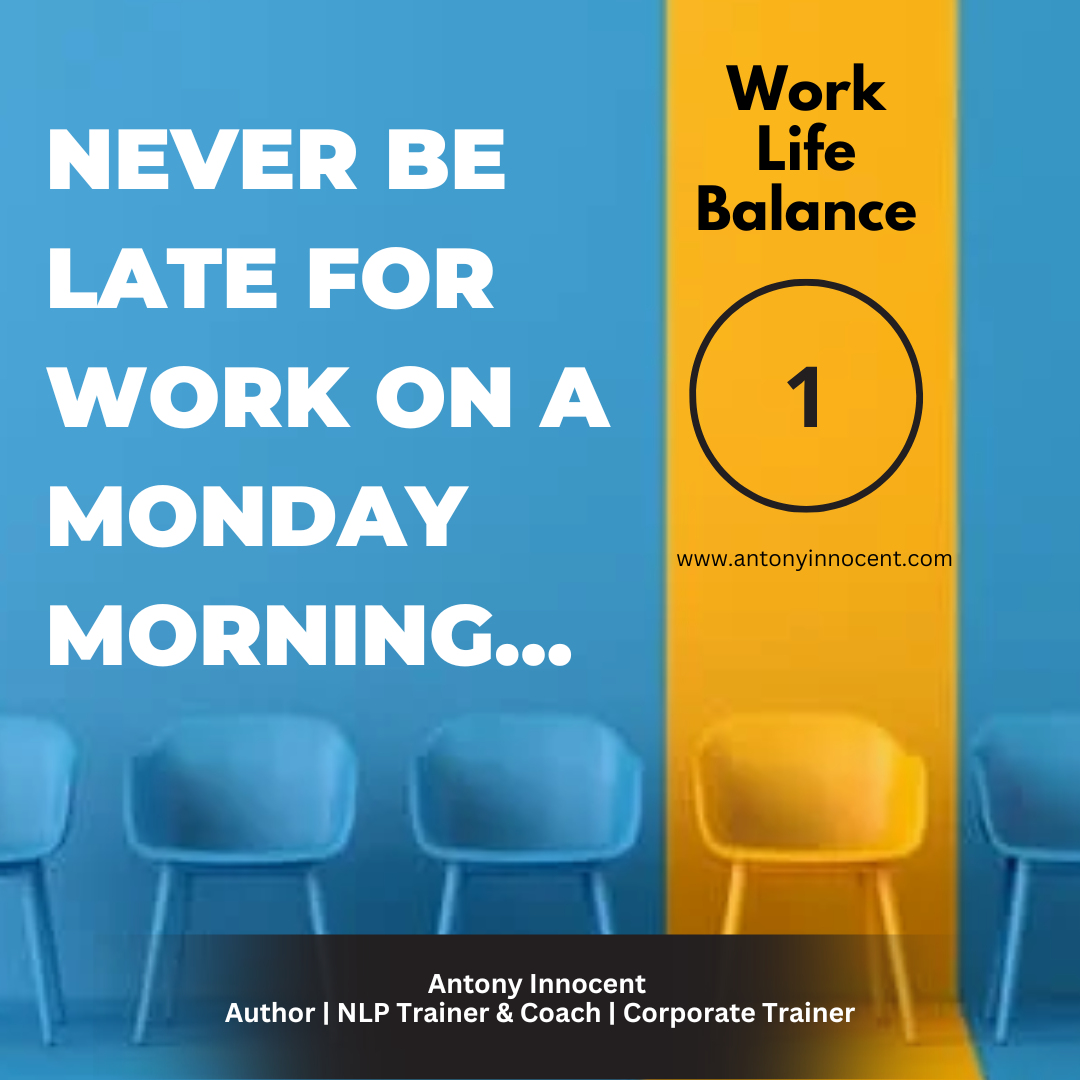Work Life Balance – The Ripple Effect of a Late Start
The start of a new workweek, particularly Monday morning, sets the tone for the entire week and alters the work life balance A punctual arrival not only demonstrates respect for colleagues and commitments but also significantly influences personal productivity and overall job satisfaction. Unfortunately, the allure of a leisurely weekend often leads to a rushed and chaotic start to the week. This article delves into the far-reaching consequences of tardiness, exploring its impact on work ethic, productivity, and professional relationships.
The Psychology Behind Punctuality And How It Helps Work Life Balance
Punctuality is more than just a matter of time management; it’s a reflection of one’s character and work ethic. When individuals arrive late, it sends a subconscious message that their time is more valuable than others’. This can erode trust and damage professional relationships.
Moreover, a late start can disrupt the workflow of colleagues and teams. It can lead to delays in project timelines, missed deadlines, and increased stress levels. A chaotic start to the week can set a negative tone, making it difficult to recover from and maintain a positive work environment.
The Ripple Effect of Tardiness on Work Life Balance
The consequences of tardiness extend beyond the immediate impact on the individual and their team. It can have a ripple effect that affects the entire organization.
- Decreased Productivity: A late start can disrupt the flow of work, leading to decreased productivity and efficiency. When individuals rush to catch up, they are more prone to errors and mistakes.
- Negative Team Morale: Consistent tardiness can negatively impact team morale. It can create resentment among colleagues who arrive on time and put in the effort. This in turn will affect the team spirit.
- Damaged Professional Reputation: A reputation for tardiness can damage one’s professional reputation and hinder career advancement opportunities. It can make it difficult to be trusted with important responsibilities and projects.
- Increased Stress Levels: The stress of rushing to work can lead to increased stress levels, which can negatively impact mental and physical health.
Strategies for Punctuality
To combat the negative effects of tardiness, it’s essential to develop effective strategies for punctuality. Here are some practical tips:
- Prioritize Sleep: Ensure you get adequate sleep to feel refreshed and energized in the morning.
- Prepare the Night Before: Lay out your clothes, pack your bag, and prepare your breakfast the night before to save time in the morning.
- Set Multiple Alarms: Set multiple alarms at increasing intervals to ensure you wake up on time.
- Time Management Techniques: Use time management techniques like time blocking and the Pomodoro Technique to prioritize tasks and manage your time effectively.
- Avoid Distractions: Limit distractions like social media and television in the morning to stay focused on getting ready.
- Plan Your Commute: Plan your commute, considering traffic patterns and potential delays.
- Hold Yourself Accountable: Set personal goals for punctuality and track your progress.
- Reward Yourself: Reward yourself for consistent punctuality to stay motivated.
The Power of a Strong Start
A strong start to the week sets the tone for the rest of the week. By arriving on time and being prepared, you can increase your productivity, improve your work-life balance, and enhance your professional reputation.
Remember, punctuality is a sign of respect for yourself and others. It’s a valuable skill that can benefit you both personally and professionally. By prioritizing punctuality and implementing effective strategies, you can break the cycle of tardiness and achieve greater success in your career.
The Impact of Tardiness on Organizational Culture And Work life Balance
Punctuality is a cornerstone of a productive and professional work environment. When employees arrive on time, it fosters a culture of respect, accountability, and efficiency. Conversely, chronic tardiness can undermine these values and create a negative work atmosphere.
The Role of Leadership
Leaders play a crucial role in promoting punctuality. By setting a positive example and enforcing punctuality policies, they can inspire their teams to prioritize timeliness. Leaders can also foster a culture of accountability by addressing tardiness issues promptly and consistently.
The Impact of Remote Work
The rise of remote work has blurred the lines between work and personal life. While remote work offers flexibility, it’s essential to maintain punctuality and adhere to virtual meeting schedules. Remote workers should establish a dedicated workspace and stick to a regular work schedule to maintain productivity and professionalism.
The Importance of Self-Care
Prioritizing self-care, such as regular exercise and mindfulness practices, can help improve energy levels and reduce stress, making it easier to wake up on time. A well-rested and energized individual is more likely to be punctual and productive.
The Long-Term Benefits of Punctuality
Punctuality is not just a short-term benefit; it has long-term implications for career success. A reputation for punctuality can open doors to new opportunities, promotions, and leadership roles. It can also lead to increased job satisfaction and overall well-being.
By understanding the far-reaching consequences of tardiness and implementing practical strategies, individuals can cultivate a strong work ethic, improve their productivity, and build positive relationships with colleagues. Remember, a punctual start to the week can lead to a more fulfilling and successful work life.

